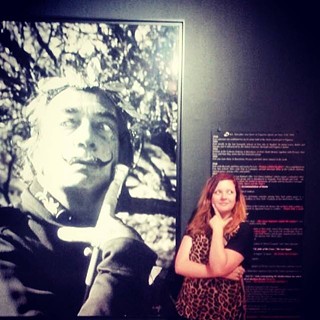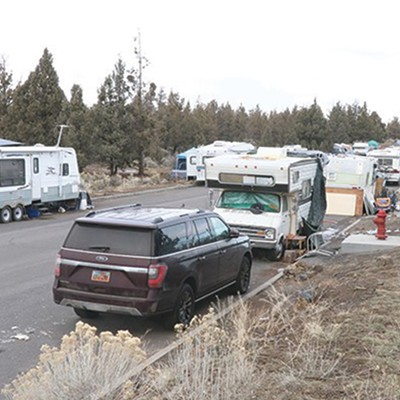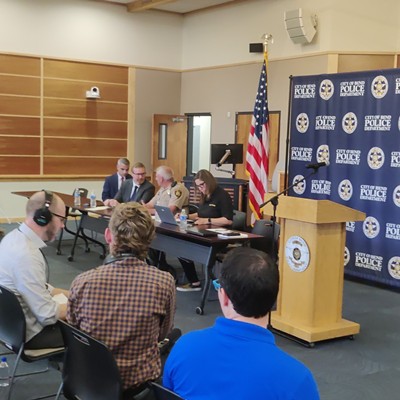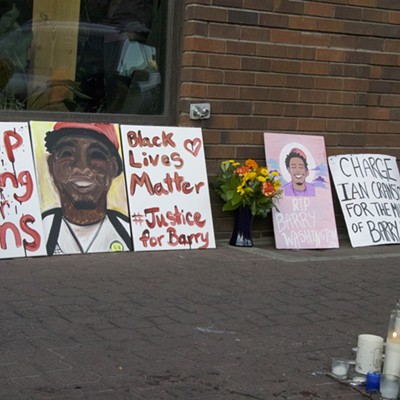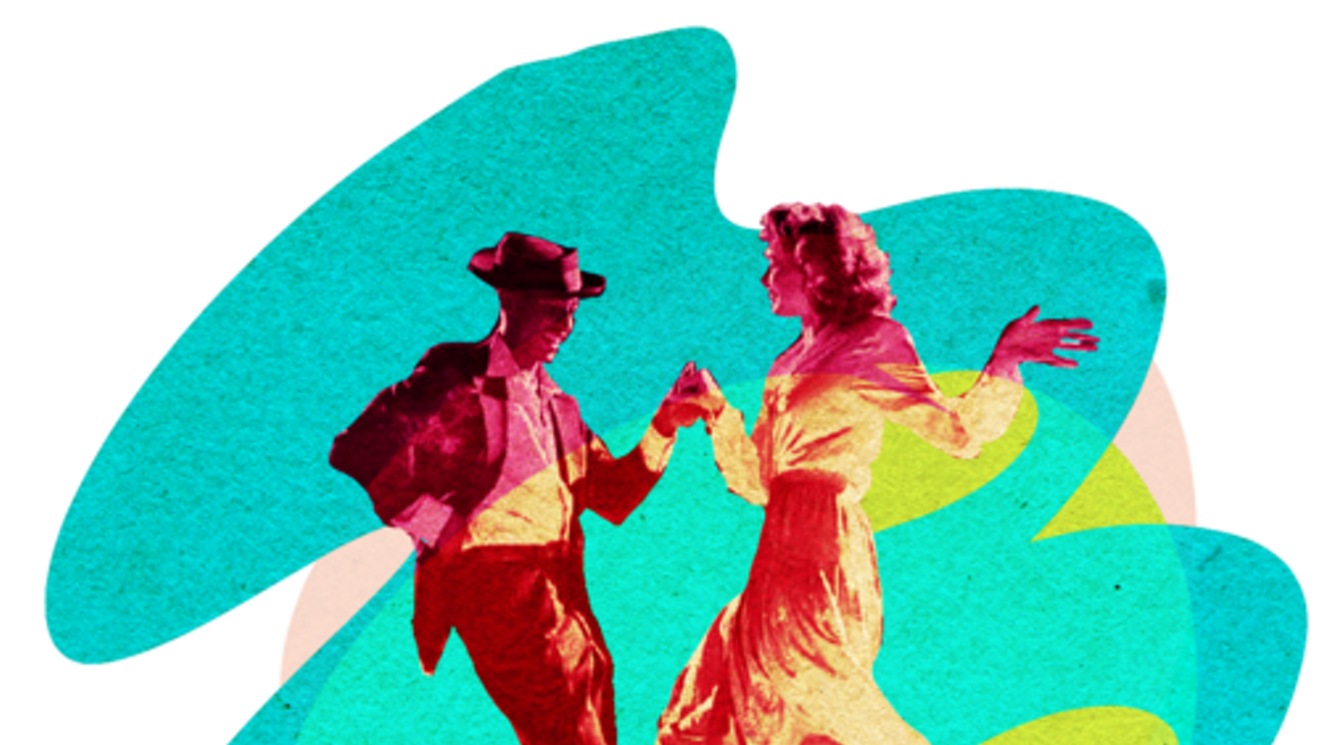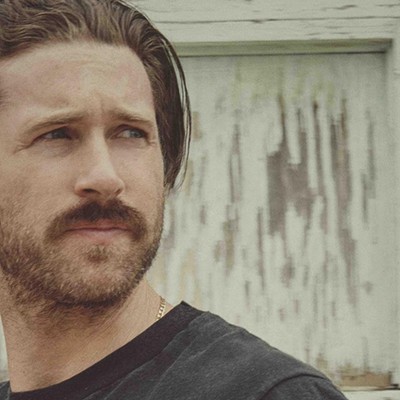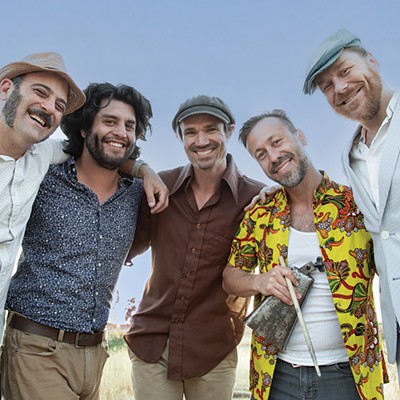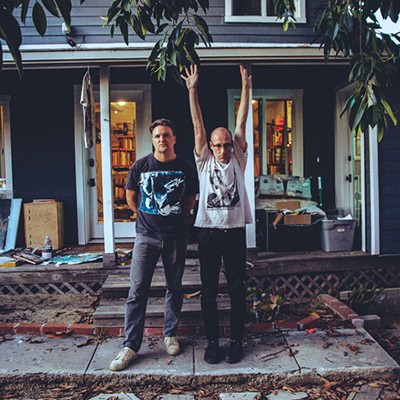A typical response to the announcement of The National at the Les Schwab Amphitheater—or any reasonably obscure band that headlines a gig at the venue where flip-flop prone pop rockers like Jack Johnson and Michael Franti rule the local demographic—is "What song do they do?"
That question isn't easily answered in the case of The National. Despite a catalogue of six albums, a track used as the mantra for Barak Obama's 2008 presidential campaign and performances on "Saturday Night Live" and "The Tonight Show," it's more a dystopian sound and a wine-guzzling, suit-wearing (read: wouldn't be caught dead on stage in flip-flops) persona that The National has perfected, than a particular song that has rocketed them to success. Perhaps that's why the band has survived a decade and a half of touring as an obscure underdog indie act. It's not built on a one-and-done hollow hit, but has established success based on a concrete foundation of dozens of solid songs, six well-composed albums and a signature sound that has steadily ascended into the popular consciousness.
The National's self-titled debut—an album largely forgotten by many fans who have latched on to the indie rock six-piece after 2005's Alligator—was recorded before the band had ever played a live show or settled into that languid melancholy niche.
"It took a little while, the first couple records were more searching around and writing songs for fun. We didn't have any direction," Scott Devendorf—half of one of two pairs of brothers in the band—explained in an interview with the Source. Scott's brother, Bryan, plays drums, and Aaron and Bryce Dessner play keyboards and guitar, flanking lead singer Matt Berninger. "It took up until the EP right before Alligator, Cherry Tree, I think at that point, we had toured around a little bit and gained some form of false confidence. The songwriting started to gel, and we found some strength in that period."
Growing the cohesive slow-motion sound built on tension and reverb-heavy down-tempo rock, The National began to thrive. Monochromatic vocals from Berninger swim a straight line through molasses—low, thick and slow, but purposeful and pointed. With clearly audible influences like Leonard Cohen and Joy Division, the even-keel of instrumentation makes for comparatively easy listening on the verge of meditative stasis. The reward for the patient listener are the subtleties in Berninger's emotive lyricism and the rare, but coveted flareups of rock madness, like the end of "Mr. November," where Berninger slips out of his trance and screams repeatedly, "I won't f*** us over," as the band builds to pounding chaos. It's not as if every record sounds the same, but once you're aware of The National, you won't ever mistake their music for anyone else.
"The sound of the band is the sound of the band," explained Devendorf. "I appreciate bands that have a sound. I don't need them to reinvent themselves every time they make a new record. I like that band."
Perhaps that mentality has contributed to The National emerging from middle-of-the-pack touring anonymity and Brooklyn clubs as dark and dank as the band's dense lyrics, to being second only to Outkast on this year's expansive Sasquatch! Music Festival bill.
"It's been interesting and fun to see it develop from small clubs to arenas," said Devendorf. "We realize for bigger audiences the show has to be bigger and brighter and project more. We make music that is somewhat intimate. Trying to retain that has been the biggest challenge—to play the slow, quiet, dark songs in these large arena type places."
Luckily for audiences, frontman Berninger has sorted out the translation formula, which he has confirmed includes a solid amount of pre-show wine. But a different side of the frontman is captured in the recently released, "Mistaken For Strangers" a documentary made by Matt's kid brother Tom Berninger, and filmed on tour with the band. More of an examination of familial relationships than a rock doc, the film currently has a 93 percent ranking on Rotten Tomatoes.
"It's done well; people really like it. We like it," said Devendorf. "For a while it was a bit of mystery. It was a project Tom was working on the side after he was done touring. He and Matt were involved and we were recording. We didn't see much of it until it was done, but we trusted Tom. We didn't know if it was a band documentary, and we weren't totally into that. We were dubious to the viability of him making the footage he had into some rock doc. It was interesting to see how he was able to construct that footage he randomly shot on tour into that story that makes sense and is emotionally moving."
Devendorf also said that the film was revealing of Matt and Tom's brotherly relationship, even to the other members of the band.
"From our perspective, we had been brothers in this band for 15 years and knew the inner personal dynamics, but we never really saw that from Matt, because he was the one without a brother. What we did was see Matt open up on tour and have that sort of relationship that we had for years."
Now on screen and on stage, The National represents the ultimate American musical dream, going from a name that could have ended as presumptuous, to being a nationally known indie rock success story.
The National with tUnE-yArDs
Fri., May 23 | 6 pm.
Les Schwab Amphitheater, 344 SW Shevlin Hixon Dr. | $39.

